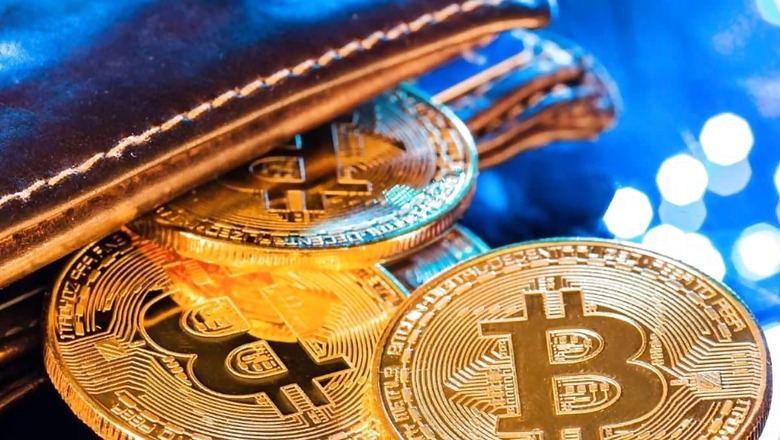
views
Written By Winston Hsiao
The digital currency landscape is continually evolving, with P2P (peer-to-peer) cryptocurrency transactions gaining significant traction among investors and traders. However, this burgeoning domain is not without its pitfalls, primarily in the form of increasingly sophisticated scams. Here are some ways to protect yourself in the P2P marketplace. Let’s follow these steps to understand and avoid these pitfalls in the world of crypto P2P transactions.
The rise of P2P crypto transactions and associated risks
P2P transactions have been one of the earliest ways people transact cryptocurrencies before centralised exchanges. It has gained traction once more in markets where regulators adopt a harsh stance toward cryptocurrencies. This method, celebrated for its decentralisation and lower fees, also harbours significant risks, primarily due to the lack of regulatory oversight and the potential for fraud and scams especially when one party is not able to verify the other one.
Identifying common P2P crypto scams
The landscape of P2P crypto scams is diverse, encompassing various tactics:
Payment fraud: A prevalent form involves reversals of fiat currency transactions after the crypto has been transferred.
Phishing attacks: These scams trick users into revealing sensitive information, leading to unauthorized access to crypto wallets.
Counterfeit platforms: Scammers set up fake trading platforms or impostor websites to defraud users.
Also Read: Cryptic Crypto: Landing over 5 Million Indian Users in Just 4 Months, B-Love Token under Spotlight
Expert strategies for safe P2P transactions
As a co-founder of an international exchange and as an early adopter of Bitcoin since 2013, I would recommend several strategies to mitigate these risks:
Select reputable platforms: Opt for P2P platforms with robust security measures and a strong reputation in the crypto community.
Conduct thorough background checks: Verify the authenticity of trading partners through available reviews and transaction history on the platform.
Stay informed about the asset: A deep understanding of the cryptocurrency involved is crucial, including its market trends and volatility.
Use secure communication channels: Rely on the platform’s communication tools to avoid external phishing threats.
Trial transactions: Initiate small transactions to test the reliability and authenticity of trading partners.
Keep abreast of scam trends: Regularly update your knowledge about the evolving tactics used by scammers in the crypto space.
Impact of regulatory measures on P2P crypto trading
Globally, regulatory bodies are increasingly focusing on the crypto market, with measures being introduced to safeguard traders in the P2P space. These include the enforcement of KYC (Know Your Customer) and AML (Anti-Money Laundering) protocols. While these regulations aim to protect users, they also introduce complexities and compliance requirements for P2P platforms and traders.
Learning from past P2P crypto scams
Case studies of past P2P crypto scams provide crucial lessons. For example, a notable scam involved a fraudulent P2P platform that collected deposits from users before disappearing. These incidents underline the importance of due diligence and the potential risks of engaging with unverified platforms.
Global variations in P2P crypto trading
The approach to regulating and managing P2P crypto transactions varies significantly across countries. In some jurisdictions, clear and reasonable regulations offer a degree of protection, while in others, the lack of regulatory frameworks exposes traders to greater risks. This disparity necessitates a keen awareness of the legal and regulatory environment in each market.
Technological innovations in combatting crypto scams
Advancements in technology, such as blockchain analysis tools and AI-driven fraud detection systems, are increasingly being employed to combat P2P crypto scams. At XREX, we offer a free digital escrow tool, BitCheck, to all XREX users to ensure both parties are protected until they fulfill their obligations in a P2P deal. They can also add a BitCheck contract signed by both parties’ verified names and download it in PDF form as proof in case there is any unexpected issues. These innovations offer new ways to detect and prevent fraudulent activities, enhancing the security of P2P transactions.
A call for vigilance and education
Navigating the P2P crypto market safely requires a combination of vigilance, education, and proactive risk management. By understanding the risks, recognizing the hallmarks of scams, and adhering to best practices, traders can significantly reduce their vulnerability to fraud. As the cryptocurrency market evolves, staying informed and cautious is paramount for anyone participating in P2P crypto transactions.
(The author is the co-founder and chief revenue officer of Taipei-based blockchain-enabled financial institution XREX Group)


















Comments
0 comment